'We Want It All:' CMO Burton Defends Dell EMC's Storage Market Position And Discusses David Goulden's Departure
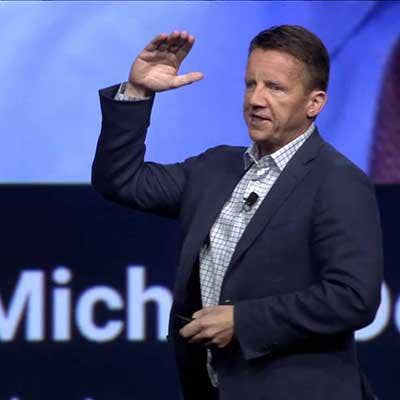
Market Moves
Dell Technologies Chief Marketing Officer Jeremy Burton says the company is on a mission to increase its storage market share, and strategies are in place to do so even as infrastructure chief David Goulden leaves the company.
The company announced Friday that Goulden would leave at the end of its fiscal year in early February. His departure comes a year after Dell's $58 billion acquisition of EMC, where Goulden led the Information Infrastructure division. Dell EMC is facing flat sales and decreasing demand in its storage portfolio, while its server and networking business grows briskly.
Goulden last week discussed the sales pressures facing Dell EMC's storage business, and outlined a plan to hire hundreds of salespeople and make adjustments to internal salespeople's compensation to stoke storage demand, especially in the all-important midmarket segment.
Goulden will be replaced by Jeff Clarke. The appointment will make the 30-year Dell veteran the head of both the company's Client Solutions Group and Infrastructure Solutions Group.
Burton discussed Goulden's decision to leave the Dell Technologies, as well as the company's strategy and outlook for the storage, server and cloud markets. What follows is an edited excerpt of his interview with CRN.
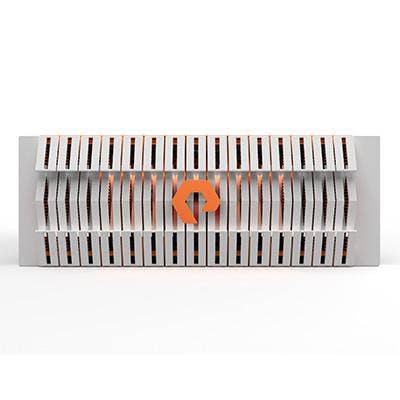
What does Dell EMC have to do to secure its position in all-flash against a competitor like Pure Storage?
In all-flash, we're still No. 1 by quite a margin. Now, obviously, we want it all. I still don't think we've fully maximized the Dell distribution channel. EMC has been very, very adept at going to the enterprise customers both direct and with our channel partners. The midmarket is a real area of opportunity. On our latest earnings call [CFO] Tom Sweet outlined a plan to add a lot more capacity in the midmarket. We do think there's an opportunity there, and we think the midmarket is a faster-growing segment. Our growth plan is midmarket for all-flash. That's how we take our share from 30 to 40 percent to 50 to 60 percent. We've got to be successful in the midmarket. Clearly, the channel is going to be a huge part of that.

Midmarket is a huge range for you, between $5,000 and $250,000. How do you parse that out?
[President Global Sales and Customer Operations] Bill Scannell has the top 3,000 accounts in enterprise. [President and Chief Commercial Officer] Marius [Haas] has commercial. We've got five tiers, and I'd say we're looking at tiers two, three and four as really the area where there's a lot of opportunities where we haven't really had the level of storage expertise that we need to drive the growth we want.

How is Dell EMC changing compensation plans for its sales teams in order to drive that growth?
It's tweaking as much as anything. What you always strive for is the optimal mix. We have many different products that have many different margin profiles. The margin on a laptop or a server is very different than the margin profile of a storage array. As much as we have been very aggressive at incenting the teams to cross-sell – meaning if you're in a storage account, sell servers and client and if you're in a server account, sell storage – the compensation tweaks have been put in place to make sure we get the right mix of products. We've been aggressive about cross-sell, and that's why revenue has been over-achieving. Another thing we've been really aggressive about is the utility model. The comp changes are geared toward moderating the mix.

What do the compensation tweaks look like?
The best example would be our server business. It's grown like gangbusters. The margin profile on servers is different than the margin profile on storage. If a dollar is just a dollar for the sales team, they're going to gravitate toward the thing they can sell most easily. The goal of every sales team is to hit your quota as efficiently as possible. We've got folks really aggressively going after the cross-sell in servers and client, particularly in the enterprise space where we've got great relationships. So, it's not that we want to dis-incent people from selling those things, we just want to incent them to do more to push the higher-margin storage products, but it's tweaks more than wholesale changes.
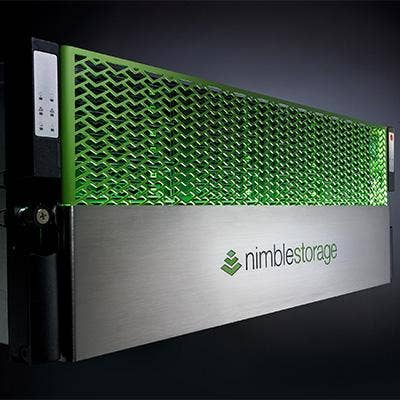
How can Dell EMC respond to the push that HPE/Nimble is making in the market?
Nimble has been very strong down-market. We just need to manage mix more than anything. In the midmarket, which historically has been Dell's power alley, they really have the transactional sales engine. What we need to add is storage selling expertise, because that wasn't the real strong suit for EMC prior to the merger, and storage was a relatively small part of Dell's business. Really what we need to do to counter the Nimbles is the same thing we need to do to grow our share in all-flash and counter Pure, and that's add storage capacity in that midmarket segment, and that would be both the sales reps and also supporting technical folks to assist the channel, as well.
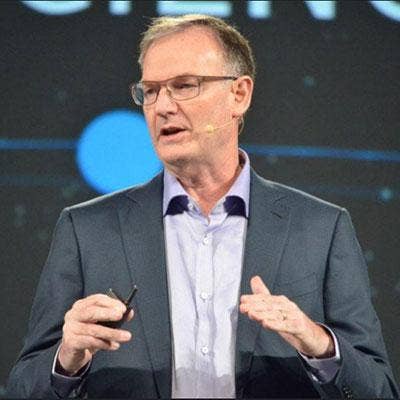
What precipitated David Goulden's decision to leave the company?
I've known David a long time. On a personal level, it's the end of an era. I've worked with David for the last seven years. I think in this situation, and maybe not uncommon with CEOs of companies that are acquired, he's not the CEO anymore, or hasn't been since we closed the deal, and I think he felt it was his responsibility to safely transfer the business. I think the one-year anniversary and the business being in a good place is maybe the ideal time. Jeff Clarke has a very strong product background. If you look at David's role at this point, he doesn't have the G&A functions he had prior to the merger. Sales reports up to Michael, so it's largely a product and operations role, and that's really been in Jeff Clarke's power alley over the years.

So Goulden wanted to stay to make sure the acquisition and integration went well?
The main concern here on timing was making sure he completes the transition of the business, and if the business is struggling, I think leaders always feel like they want to stay longer. If the business is in a good position, which I think it is at this point, then it's a good time to transition.

What's your message to partners as this transition happens?
It's a smooth transition. The Dell Technologies business overall really is doing very well. What you're going to get with Jeff Clarke running all the product lines is a technologist that is really going to working to simplify the product line and make it easier to sell. He certainly knows how to build product for that segment we've been talking about, and if he can apply some of those smarts and make things simpler and improve the velocity of the business, then I think that's going to be good for the channel.

What kind of role do you think David Goulden will end up in?
Obviously, although he's 58, he still gets out on the tennis court and is pretty competitive. I'm sure he's got another gig in him yet. I think another CEO role is what he's cut out to do. If he goes to do something next, that's certainly what he would go look at. He goes down as one of a very small group of CEOs that have pulled off a successful, large-scale technology merger. There really aren't a lot of people around who have done it, and that probably looks good on the resume.

The Dell EMC management ranks have been relatively stable. With David Goulden leaving, should we expect other management moves?
It has been incredibly stable. The fact that you've got Michael running the company, and he's the founder of the company, that's a big factor. It's his company. He runs it a little bit like it's a start-up. He makes the calls, and everybody has clarity. Given the more complicated corporate structure we have relative to some of the other tech companies, Michael has been able to cut through a lot of that complexity and get folks aligned, which is why you see the VMware business growing, you see the Pivotal business growing, you've seen relatively few hiccups in the integration. At the scale we're at, that's motivating for folks. The stability is a byproduct of decisions being and people feeling like they're making forward progress. In the management ranks, if you feel like you're making forward progress and you've got a chance to win, then that's a good reason to stay.

Amid the transition to cloud technology, how can Dell EMC's infrastructure business manage to be all things to all people, as it seems to want to be?
There's a couple of ways to look at that. There's a move for third parties to build cloud environments, service providers, and we've got dedicated go-to-market to attack that service provider segment. There's a handful of really big ones like the Facebooks and the Amazons and the Googles. They don't buy a whole lot of anything from anyone. They'll buy components direct from ODMs in China. But there's a pretty big market outside of those guys to supply technology, and we have a dedicated go-to-market to get after that. We do pretty well in that segment. Increasingly what we're seeing is companies transitioning their data centers to cloud environments. That's the trend.

And those customers are transitioning to a mix of public and private cloud?
What's clear is that folks are going to have something on-premise[s] and they're going to have something in the public cloud. So, multi-cloud, hybrid-cloud, whatever you want to call it. If you go back a year or two, you saw folks saying, 'Hey, maybe everything goes to public cloud. We've got a cloud-first strategy and we're going to put everything in Amazon or wherever.' I think that has started to mediate, or reality has started to set in. What I hear more often than not is companies talking about the hybrid strategy. That segment of the market is going to be pretty big, and certainly, with the likes of VMware in the portfolio, they tend to take the lead on that kind of transition to a private and then hybrid cloud, and the Dell EMC infrastructure comes in behind it.

What about things like cloud-native apps?
It's further out, but what I think is going to become increasingly relevant over time, is the increasing number of folks that are building new, cloud-native apps and putting them on new cloud-native infrastructure, and Pivotal tends to take the lead there. At VMworld, Pivotal, VMware and Dell EMC announced what we call a developer infrastructure. It's basically Pivotal Cloud Foundry on VMware on Dell EMC. It allows for folks to get that cloud-native environment up and running. That's not a big business today, but we think over the next five years as people build out those cloud-native apps and increasingly try and make their company digital, we've got a good play there, as well.
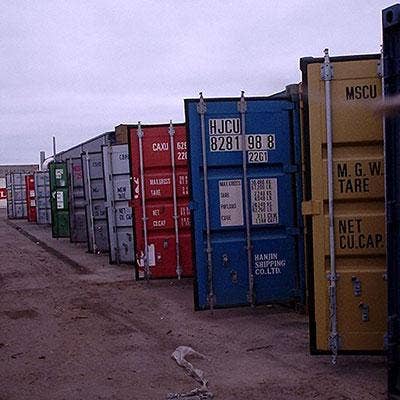
One of the other announcements was about Pivotal Container Service. Up until this point, containers were considered a big threat to VMware. Is the strategy now based on the idea that they need each other?
It's a little bit like the cloud discussion. People were like, 'public cloud, that's all we're going to do,' then reality sets in. The same has happened in the world of containers. People said the container is the new VM. It's more granular, it's more lightweight. What folks have realized is that running containers on bare metal is kind of painful. Most corporations already have a VM infrastructure in place that does a nice job of managing the hardware resources, so why rip and replace that? Even the big cloud providers tend to run containers on VM infrastructure just because the VM gives you a relatively simple way to manage the hardware resources. The mindset has gone from the container as the new VM to well, container is the new application container, but the way we're going to manage hardware resources is still going to be through a VM. Because we already have it in place and because it does a pretty good job of that, and things like Docker don't yet.